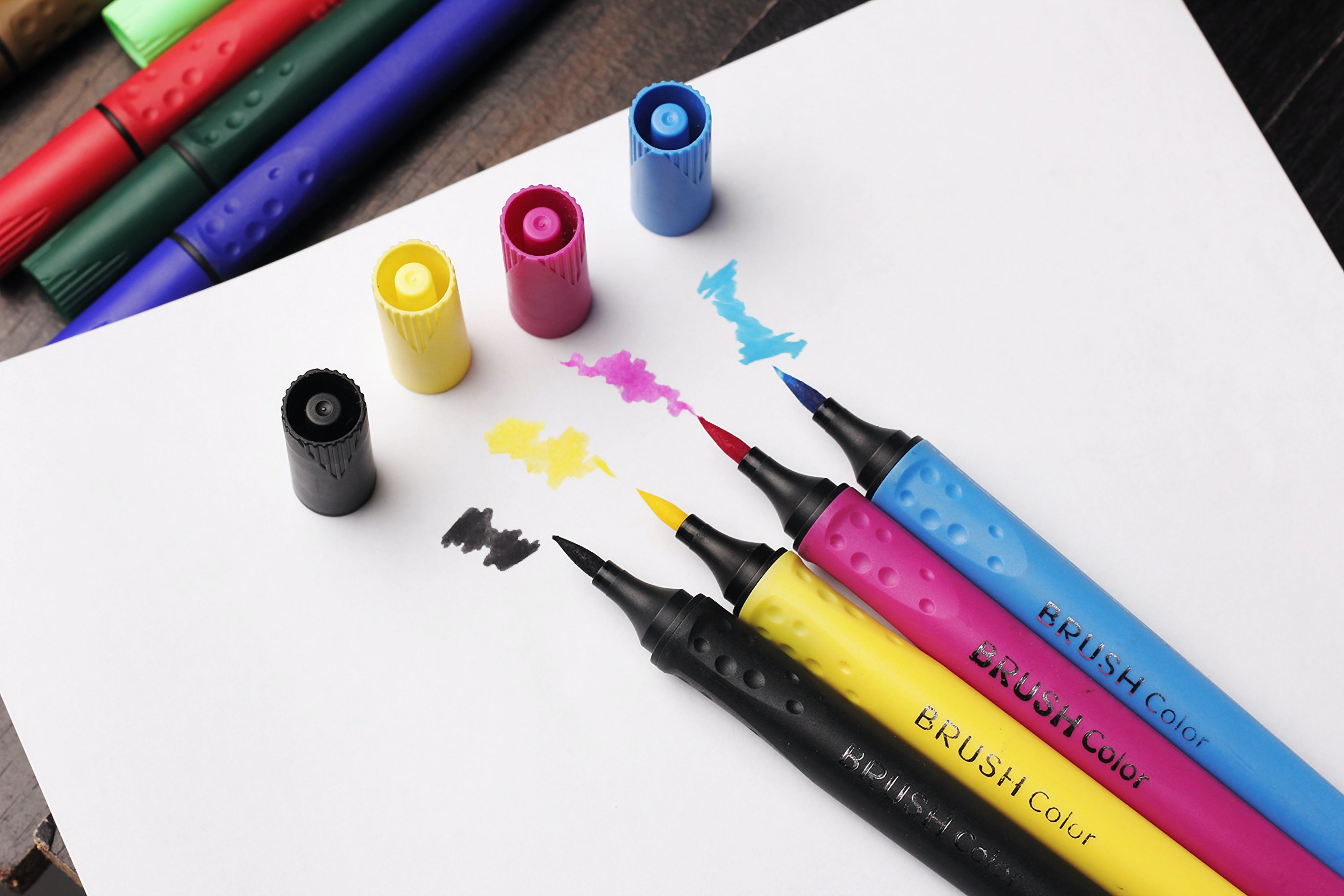Sunday was a big day in our house for my eight year old daughter. For weeks now she has been scrounging for income and saving up all her earnings to work towards buying some special markers she really wanted. Each week she folded and put away laundry, brainstormed other chores she could do around the house, and plotted and schemed for ways she could earn the $25 necessary to achieve her goal. Finally, on Sunday after unloading and putting away the groceries and doing her laundry from start to finish she reached her goal and off to Target we went.
When we got home and were making dinner she uttered the quote, “I feel like when you’re working towards a goal you’re trying to get to, you work better and faster and are committed to what you’re doing. Think how many laundries I’ve done!”, which got me thinking about Learner agency. In this case, my daughter personified learner agency. She was strategic and goal-directed towards the markers. She was purposeful and motivated for weeks to achieve her goal and she was resourceful and knowledgeable about how to go about accomplishing it.
We can ask more of our students in school. They can do hard things and the act of setting goals and achieving them is empowering, creating fuel for the next goal and the next.
If the kids you work with are anything like my daughter they can be relentless negotiators and shrewd and cunning problem solvers when it comes to something they want like a sleepover, a new toy, candy, or a purchase at the checkout aisle. But, those same kids are also willing to mortgage their future to pay for the present. That’s what made my daughter’s achievement even more rewarding for her. She bypassed cute stuffed animals at swim lessons, candy at the airport, and other toys along the way for her ultimate goal of these markers.-1-1.jpeg?width=284&height=223&name=unnamed%20(1)-1-1.jpeg)
In the two days since she purchased the markers she has drawn me four pictures, her brother 3 and her mother 5. She woke up this morning and went straight to another drawing and has brought them to school each day to let her friends use them. Would these markers have meant so much to her if I had just purchased them when she initially wanted them or would they become another item on her ever-crowded shelf of stuff?
It got me thinking, too often, learner agency is developed outside of school through home experiences like this, or through sports or the Arts, as children set goals, forgo quick payoffs, and strive for long term, hard goals. Our kids don’t have enough opportunities within school to drive their own learning. Couple that with research from the Opportunity Myth that found after following “nearly 4,000 students in five diverse school systems to learn more about their experiences… Students spent more than 500 hours per school year on assignments that weren’t appropriate for their grade and with instruction that didn’t ask enough of them.”
We can ask more of our students in school. They can do hard things and the act of setting goals and achieving them is empowering, creating fuel for the next goal and the next.
Here are 5 ways to start cultivating learner agency in your classroom today by helping students become goal-directed.
1. Bring students into the process. Start by sharing your goal, that you want your students to take ownership of their learning. Explain to them what learner agency means and why it is important.
2. Get the ball rolling by setting a goal for your class or for your students. We will read X books before May, we will perform 100 acts of kindness in the next two weeks, etc…Then track progress with check-ins and updates.
3. Have your students regularly set goals for themselves. Their goals could be academically focused or personally driven. Review these goals with them on a regular basis and provide them feedback. Encourage them to keep going and resist the urge to temper their goals. A great way to build this in to each day is by incorporating this practice into morning activities. Braxton Hall shares how implementing morning goal-setting helps students self-evaluate their needs and use their executive function skills to create a plan to be successful that day.
4. Make goal setting and reflection part of the classroom culture. Share your own personal stories of goal setting and achievement in your regular activities, highlighting both the successes and struggles of your goals. Provide time and space for your students to reflect on their growth in numerous ways. There are some helpful prompts to guide student reflection here.
5. Make the goals visible and allow them to monitor progress. Accountability in goal setting is powerful. Studies show that when students track their own progress, there is a 32% increase in achievement and as noted in John Hattie’s research many aspects of goal setting have a higher effect size than the average, including self-reported grades/expectations which have an effect size of 1.44.
Learner agency includes being goal-directed and strategic. With a few simple shifts we can be more intentional about creating goal-directed learners in our schools, classrooms, and staff so we can all get those special markers in our lives!
This post has been updated from the original publishing date



